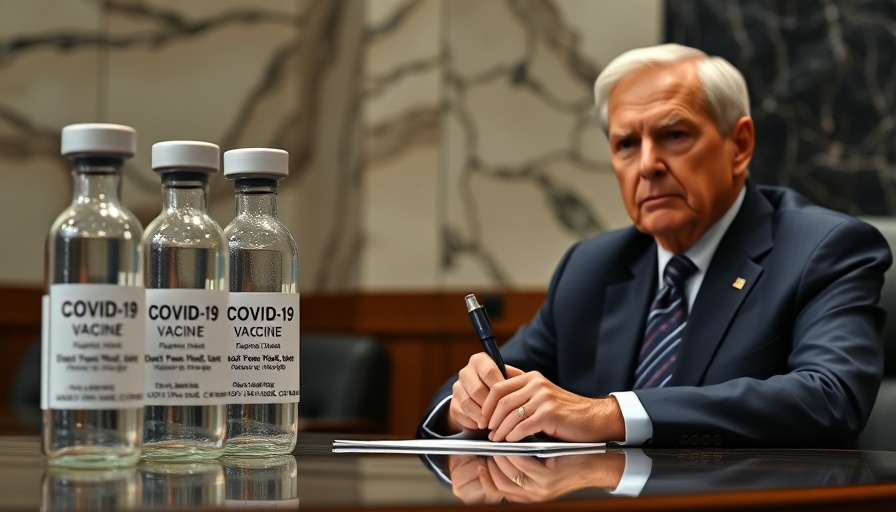
Understanding Trump's Executive Order on Drug Pricing
In a landmark move, President Trump has signed an executive order aimed at reducing drug prices across the United States by implementing a Most-Favored-Nation (MFN) pricing model. This new policy requires pharmaceutical companies to set drug prices in the U.S. at rates comparable to those in certain economically developed countries. The order has the potential to save Americans an astonishing $88 billion over the next seven years, and it primarily targets brand-name drugs without generic alternatives.
The Concept of Most-Favored-Nation Pricing
The MFN pricing model aims to keep the drug costs in check by aligning them with the lowest prices available in other advanced economies. Countries like Germany, France, and Japan, where drug prices can be significantly lower, serve as benchmarks. This concept challenges the longstanding issue of "foreign freeriding," where the costs of research and development are subsidized by American consumers who pay elevated prices, leading to frustrations over essential medications.
The Voices Against Big Pharma
Big Pharma's reaction has been anything but supportive. Lobbyists are concerned that this price control could hamper innovation and limit patient access to new treatments. However, many analysts argue that it's critical to assess the balance between corporate profits and public health needs. By enabling American consumers to purchase medicines directly from manufacturers at the lowest global prices, we can potentially break the cycle of inflated costs due to middlemen and monopolistic pricing.
Benefits for American Patients
Trump's actions are hailed as a victory for patients who have faced steep drug prices at the pharmacy counter. Recent statistics reveal that Americans end up paying nearly four times higher than what residents of other wealthy nations pay for similar pharmaceutical products. This policy not only champions equity in drug pricing but is also expected to foster transparency within the pharmaceutical industry, ensuring that consumers know they are not being exploited.
Empowering Patients with Choices
Under the MFN model, not only do patients stand to save money, but they are also afforded greater agency. This policy allows Americans to engage collaboratively in their healthcare decisions, knowing they can access life-saving treatments without the crippling financial burden often attached to them. Imagine being able to find affordable medications for allergies or chronic conditions, making holistic and integrative medicine more accessible to those in need.
Looking Forward: The Future of Drug Pricing
As the implementation of this policy unfolds, it presents an opportunity for rethinking healthcare in America. It highlights the need for a system that prioritizes patient welfare over corporate profits. The effects of these changes will not only impact the current generation but also pave the way for a more equitable healthcare system in the future. Advocating for transparency, we can demand accountability from drug manufacturers, ensuring they prioritize patients as well.
Conclusion: A Call to Awareness and Action
The fight against exorbitant drug prices is gaining momentum. As individuals who advocate for healthy living, we must stay informed about these policy changes and consider how they affect our community's well-being. Ensuring fair pricing means advocating for our rights as patients and seeking out alternatives that prioritize health rather than profit. Engage in local discussions, share experiences, and support grassroots initiatives that push for accessible medication. Together, we can encourage a culture of health that fosters well-being for everyone!
 Add Row
Add Row  Add
Add 



Write A Comment